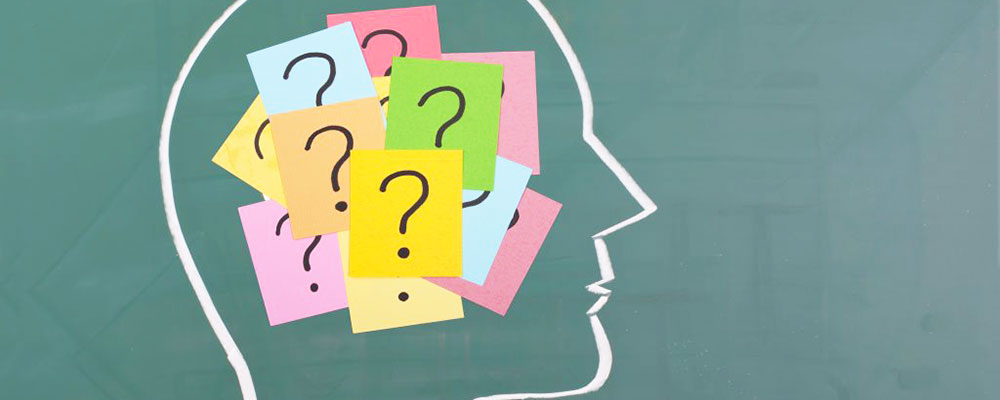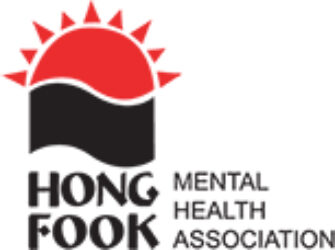
Major Depression is a medical illness. Because it is a medical illness, many times the first signs of Major Depression can be physical symptoms such as fatigue, sleep changes, appetite changes, aches and pains, etc.
Everyone feels sad at times, especially when something bad has happened (for example, after the death of someone close to you or the loss of a job). This is a normal reaction if it goes away within a reasonable amount of time.
However, if you are experiencing sadness and most of the above symptoms almost every day for two or more weeks, you may have a medical illness called Major Depression. This is a common disease, which people don’t talk about.
It affects 10-15% of men and 15-25% of women. If you get treatment, there is a high chance the illness can improve within a short period of time (within the last 2-6 weeks). Without treatment, it may last 6-18months or even longer.
- Do you feel a loss of energy for no reason?
- Do you have sleep problems?
- Do you notice that your concentration or memory is not as good?
- Do you have thoughts of dying?
- Do you feel sad almost every day?
- Do you feel worthless or guilty?
- Do you not enjoy things anymore?
- Do you notice any changes in your appetite?
If you answered yes to most of these questions you may be suffering from Major Depression.
What causes Major Depression?
- Genetics: People with a history of depression in their family have a slightly higher chance of becoming depressed. However, genetics alone does not cause depression.
- Psychology: The way you have learned to deal with problems may contribute to depression. If you are the type of person who has a low opinion of yourself and worries a lot, if you are overly dependent on others, if you are a perfectionist and expect too much from yourself or others, or if you tend to hide your feelings, you may be at greater risk of becoming depressed.
- Life Events: Early childhood trauma and losses (such as the death or separation of parents) or adult life events (such as the death of a loved one, divorce, loss of a job, retirement, serious financial problems and family conflict) can lead to depression.
- Biological Factors: Hormonal or chemical imbalances in the brain may cause depression.
Treatments For Depression: Talk Therapy
Talking to a professional who has been trained in providing psychotherapy (otherwise known as talk therapy) to people who are depressed, can be helpful. The therapy helps to relieve distress by discussing and expressing feelings, to help change attitudes, behaviours and habits that may be causing the depression. Doctors, social workers, psychologists and other mental health professionals are trained in different models of talk therapy.
Scientific research has shown that two types of talk-therapy can be effective in treating depression. One type is Interpersonal Therapy. In this type of therapy, people look at how their relationships with other people may be causing their depression.
The other type of therapy is Cognitive Behavioural Therapy. This type of talk therapy helps people see how their negative thoughts and behaviours are causing their depression. Examples of negative thoughts are “I am useless and worthless”, “Nobody likes me”or“I have no future”. Examples of negative behaviours include avoidance of social interactions with people or decreasing activities that you enjoy. Cognitive Behaviour Therapy teaches people how to change these negative thoughts and behaviours.
Treatments For Depression: Medications
Medications called antidepressants can be used to treat depression. It is important to have a doctor you feel comfortable asking questions about medications and their side effects. Some people worry that they will become addicted to or dependent on medication. Antidepressants are not addictive. Many people believe being on antidepressants is a sign of weakness. Depression is a medical illness that, without treatment, can worsen significantly and even become life threatening. All medications can have side effects.
Common side effects from antidepressants are headaches, nausea, dry mouth, insomnia, increased anxiety, sleepiness and sexual difficulties. The headaches, nausea and increased anxiety will usually decrease the longer you are on the medication. If you are struggling with side effects it is important to tell your doctor and not suddenly stop your medication. A sudden stop of your medication can cause unpleasant reactions.
To get the best effect from a medication, your physician may gradually increase the dose to a therapeutic level. Unlike other medications that relieve symptoms very quickly, antidepressants usually take 2 or more weeks to take effect.
It is common for your doctor to try two or more different antidepressants before finding one that works well for you and has tolerable side effects. Once the medication has treated your depression, it is often recommended that you continue to take the medication for up to one year or more, in order to prevent a relapse.
Treatments For Depression: Other Options
There are other things that have not yet been scientifically researched but may be helpful. Learning skills to solve problems or how to be more assertive may be helpful. Lifestyle changes such as good nutrition, exercise and meditation may also be helpful.
Treatments For Depression: Help for Families
Seeing a relative with depression can make you feel sad, frightened, helpless and anxious. You may experience guilt, anger and frustration. Without information about depression, you might think that your relative is lazy, give well-meaning advice and become frustrated when he or she does not act on your advice. If your relative talks about suicide, you will understandably live with a great deal of worry. Families need to get as much information as possible about depression. Knowledge and understanding will improve your ability to assist your loved one and deal with your feelings. Information is available from the doctor, social worker or other mental health professional. Moderately depressed people may be able to hear your helpful suggestions, but be unable to act on your advice. Avoid quizzing them about what made them feel depressed. Do not blame them for the way they feel, or tell them to snap out of it. This will only increase their feelings of guilt, loneliness and isolation. Depressed people often cannot identify what made them depressed or what will be helpful.
If your relative is severely depressed, it is normal for you to experience his or her company as very draining. Short, frequent contacts are often the best way to deal with them.
When someone suffers from a serious illness, it is natural for family members to feel worried and stressed. This stress can lead to sleep problems, fatigue and chronic irritability. It is important to recognize these signs of stress in yourself and look after your own health. Make time for yourself. Make sure you have good support from friends and relatives. There may be a self-help organization in your area. These are usually offered at local hospitals or community mental health clinics. Accept that sometimes you will have negative feelings about the situation. These feelings are normal and you should not feel guilty.
Where Can You Get Help In Toronto?
Your Family Doctor
If you think that may be suffering from depression, make an appointment with your family doctor. At the beginning of your visit, ask your family doctor if you might be suffering from depression. If your family doctor thinks that you are suffering from depression, he/she will give you advice about what to do. If your family doctor needs a second opinion about your illness, he or she may send you to a psychiatrist, a specialist in this area of medicine.
Community Health Programs
Hong Fook Mental Health Association
Tel: 416- 493-4242
This is the main agency for Asians with mental health issues.
Toronto Western Hospital – Asian Initiatives in Mental Health
Tel: 416-603-5800 ext.5349
South Riverdale Community Health Centre
Tel: 416-461-1925
This program is only for South Riverdale residents.
Wellness Centre
Tel: 416-291-3883
Local Hospital Emergency Room
If you are seriously thinking about ending your own life, you must see a doctor right away. You may go to your local hospital emergency room if you can’t see your family doctor right away. If your relative is talking about killing himself or herself, you can call their family doctor or the hospital emergency room. They will give you advice about what to do.
